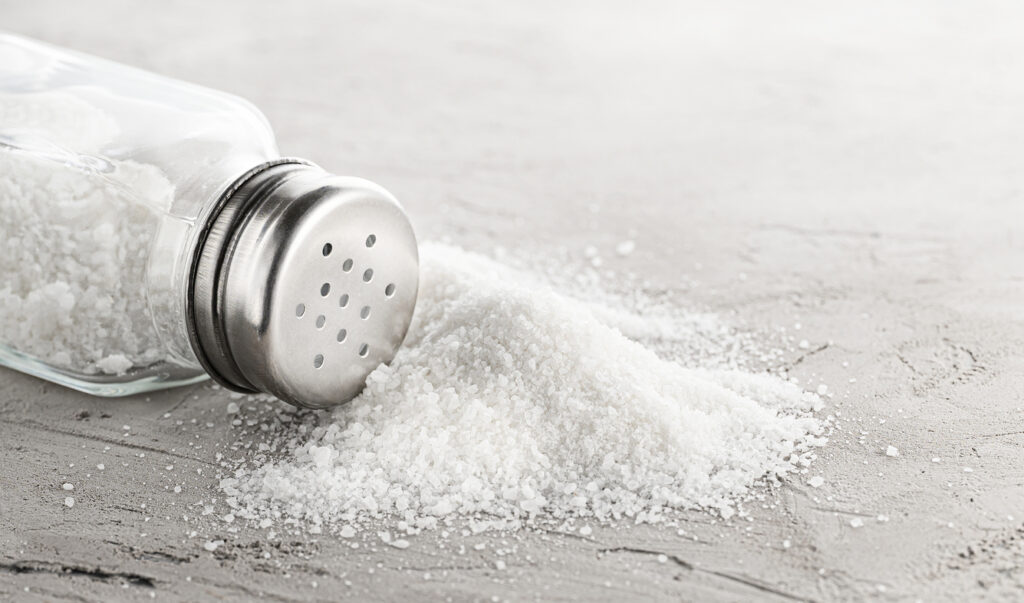A high-sodium diet may increase the risk of eczema, according to researchers at University of California, San Francisco (UCSF).
Eating just one extra gram of sodium per day increases the likelihood of flares by 22%, the researchers report.
In the cross-sectional study, researchers analyzed data from more than 215,000 people aged 30 to 70 from the UK Biobank, which included urine samples and electronic medical records.
They could tell how much sodium each person was eating from urine samples, and they could see whether people had a diagnosis of atopic dermatitis, as well as the severity, from prescription codes.
Each additional gram of sodium excreted in urine over 24 hours was associated with 11% higher odds of an eczema diagnosis; 16% higher odds of having an active case; and 11% higher odds of increased severity.
Next, they looked at 13,000 U.S. adults in the National Health and Nutrition Examination Survey and found that eating just one additional gram a day of sodium – about half a teaspoon of table salt – was associated with 22% higher odds that someone would have an active case of eczema.
Exactly how excess sodium may increase eczema risk is not fully understood, but scientists have recently discovered that sodium is stored in the skin, where it may play a role in the inflammation in eczema.
Limiting dietary sodium could be an easy way for eczema patients to manage their disease.
“Most Americans eat too much salt and can safely reduce their intake to recommended levels,” says Katrina Abuabara, MD, associate professor of dermatology at UCSF and corresponding author of the study, which appears in JAMA Dermatology. “Eczema flares can be difficult for patients to cope with especially when they are unable to anticipate them and don’t have recommendations on what they can do to avoid them,” says Dr. Abuabara, who is also associate adjunct professor of epidemiology at the UC Berkeley School of Public Health, in a news release.


